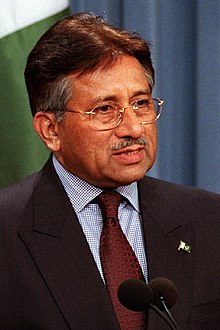Pakistan gets caretaker government to oversee January elections
Thursday, November 15, 2007
Pakistan's parliament dissolved itself at midnight Thursday to make way for a new caretaker government to oversee January elections. VOA's Barry Newhouse reports from Islamabad that while President Pervez Musharraf tries to make the elections appear credible despite emergency rule, his opponents are busy uniting against him.
Senate chairman and member of the ruling Pakistan Muslim League (PML-Q), Muhammad Mian Soomro, was appointed by Musharraf as interim Prime Minister. The rest of the cabinet will be announced later, though local television said that Musharraf loyalists had been chosen. Opposition leaders said that the January elections will not be free and fair.
Prime Minister Shaukat Aziz addressed a final cabinet meeting late Thursday before the new caretaker government takes office Friday. State television broadcast footage of Aziz praising officials for their accomplishments.
"We have promoted press freedom and freedom of expression. No government has been more tolerant that ours in hearing criticism," Aziz said.

The claims of progress by the close ally of General Musharraf stood in stark contrast to political opposition leaders, who say security forces continue to pursue the president's critics.
Ahsan Iqbal is a spokesman for the political party of exiled former Prime Minister Nawaz Sharif. He spoke to VOA by telephone.
"After elections were announced, they should have put an end to all these arrests of opposition leaders," said Iqbal. "But they are still hounding us; they are still searching for us. I am in a hideout. The entire leadership of the Pakistan Muslim League (N) (PML-N) is either in jail or in detention or they are in hiding. So how can there be fair and free elections in the country."
"We totally reject it. This appointment, in fact, is part of General Musharraf's scheme to perpetuate his rule," said Mushahidullah Khan, also of PML-N.
While the government crackdown is succeeding in preventing mass protests, its success is unifying political opposition leaders.
Former Prime Minister Benazir Bhutto has confirmed that she has spoken with Mr. Sharif about forming a broad coalition to challenge General Musharraf.

Image: IFaqeer.
"I think that we the leaders of political parties need to exchange ideas of what could be a possible agenda for all of us to rally around," she said.
Ms. Bhutto made the comments in a phone interview with Dawn News, an independent television news broadcaster that returned to local airwaves Thursday for the first time since emergency rule was imposed November 3.
United States diplomat, Brian Hunt visited with Bhutto in Lahore. Afterwards he told reporters, "I conveyed to the former prime minister the continuing U.S. government concerns about the state of emergency." He called for detainees to be freed, even as authorities arrested more Bhutto supporters at protests in various cities.
Musharraf has recently said that he intends to step down as the Chief of Army Staff and be sworn in as a civilian president, as soon as the Supreme Court of Pakistan dismisses challenges to his re-election.
Dawn and a few other stations have agreed to abide by a new code of conduct that bars news coverage that directly criticizes the president, the army or the judiciary. Criticism of the president's policies is allowed.
News anchors and hosts can face heavy financial penalties and up to three years in prison if any part of their shows is considered in violation of the law. Most political reporters for the networks have not returned to work.
This article is based on Caretaker Government to Take Office in Pakistan Ahead of Elections by VOA News which has a copyright policy compatible with our CC-BY 2.5. Specifically "Copyright status of work by the U.S. government"
Sources
edit- Zeeshan Haider. "Pakistan appoints caretaker PM for polls" — Reuters, November 15, 2007
- Barry Newhouse. "Caretaker Government to Take Office in Pakistan Ahead of Elections" — VOA News, November 15, 2007
- "Pakistan's Bhutto Wants Interim Unity Government" — NPR, November 15, 2007

